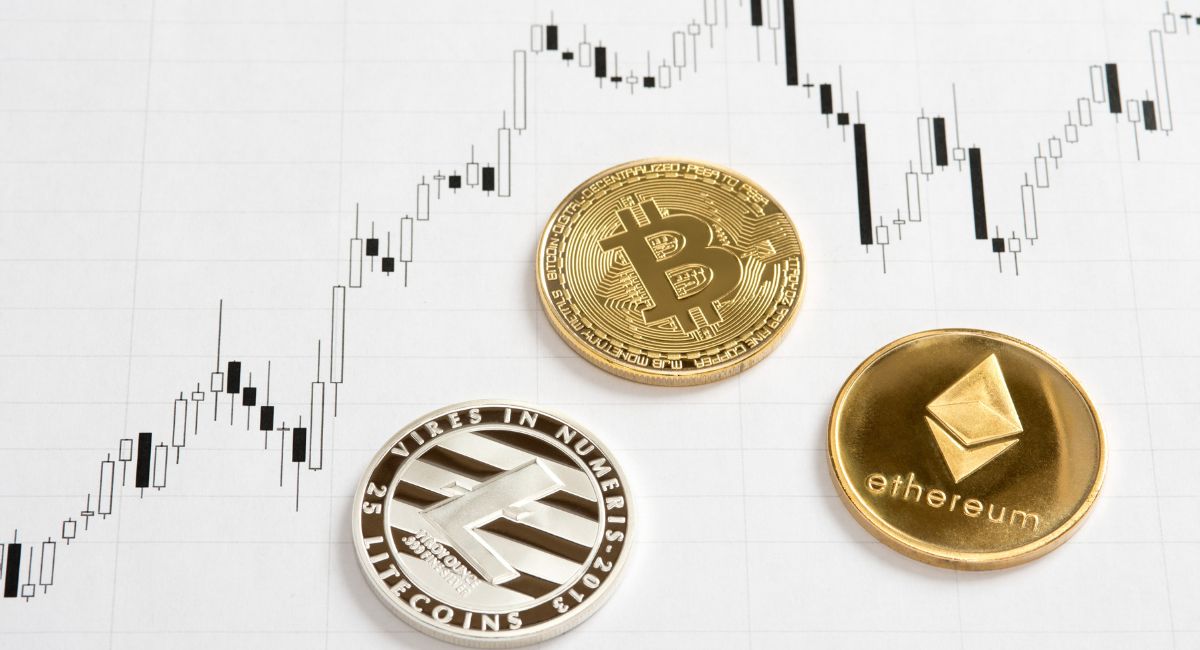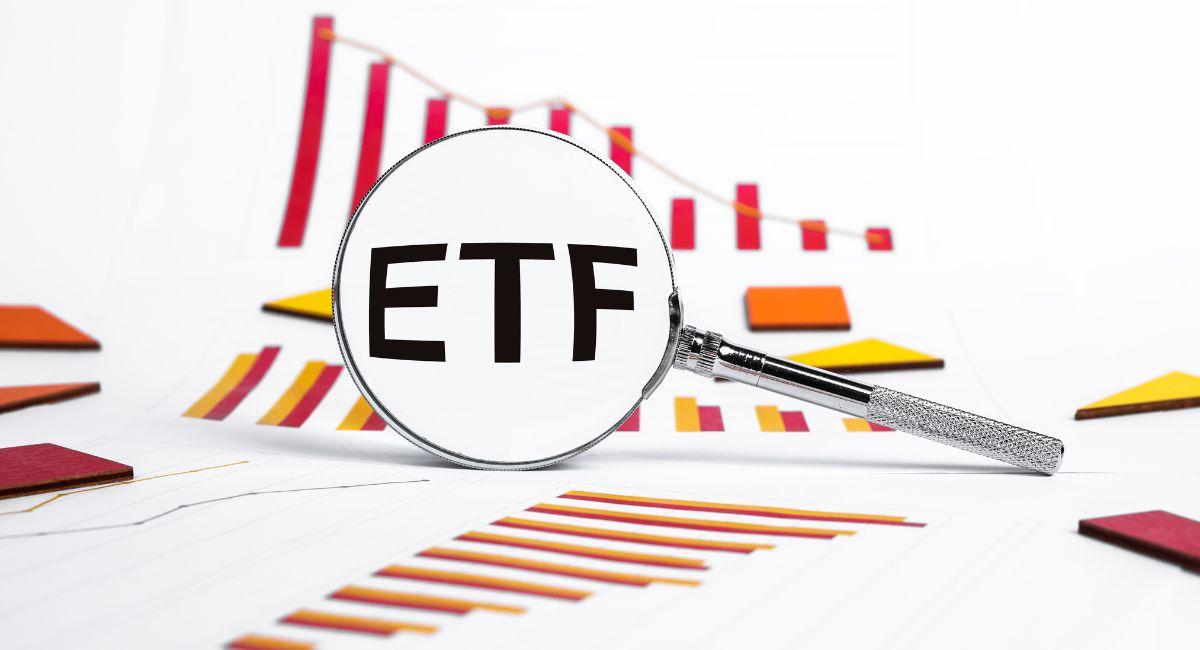Why Is Crypto ETF The Answer To Volatility And Scams In 2024?
A cryptocurrency exchange-traded fund (crypto ETF) is a securitized basket of cryptocurrencies that trades on a regulated stock exchange like traditional ETFs. It allows investors to gain indirect exposure to the performance of multiple cryptocurrencies without the complexities of directly buying and holding them individually.
Cryptocurrency ETFs offer several benefits to investors. Firstly, they provide diversification by holding a basket of cryptocurrencies, spreading risk across different assets and reducing the impact of volatility associated with individual tokens. This diversification helps mitigate risks and can potentially improve overall portfolio performance.
cryptocurrency ETFs offer liquidity, as they can be bought and sold on stock exchanges throughout the trading day at market prices. This liquidity provides investors with flexibility and the ability to enter and exit positions easily, unlike direct investments in digital assets, which may lack liquidity in certain markets or exchanges.
cryptocurrency ETFs are subject to regulatory oversight, providing investors with a level of protection and transparency not always available in direct cryptocurrency investments. Regulatory scrutiny ensures that ETFs adhere to strict compliance standards, enhancing investor confidence and trust in the market.
cryptocurrency ETFs offer convenience and accessibility to a wide range of investors, including retail and institutional investors, who may be hesitant to directly invest in digital assets due to concerns about security, custody, and regulatory uncertainty. By providing a regulated and familiar investment vehicle, cryptocurrency ETFs bridge the gap between traditional finance and the emerging cryptocurrency market, facilitating broader adoption and integration into mainstream investment portfolios.
cryptocurrency ETFs represent a convenient, regulated, and diversified way for investors to gain exposure to the potential opportunities offered by the burgeoning cryptocurrency market, while also addressing concerns around risk, liquidity, and regulatory compliance.
Also, read- Top 10 Essential Cryptocurrency Tools For Smart Investing In 2024
Importance of Crypto ETF

- Diversification: Cryptocurrency ETFs provide exposure to a diversified portfolio of digital assets, spreading risk across multiple cryptocurrencies. This diversification helps mitigate the impact of volatility associated with individual tokens.
- Accessibility: ETFs make cryptocurrency investments more accessible to a broader range of investors, including retail investors, who may lack the technical expertise or resources to invest directly in digital assets.
- Regulatory Oversight: Cryptocurrency ETFs are subject to regulatory oversight, providing investors with a level of protection and transparency not always available in direct cryptocurrency investments. Regulatory scrutiny ensures compliance with standards and regulations, reducing the risk of scams.
- Liquidity: Cryptocurrency ETFs offer liquidity, allowing investors to buy and sell shares on traditional stock exchanges throughout the trading day at market prices. This liquidity provides flexibility and enhances market efficiency.
- Risk Management: Professional management of cryptocurrency ETFs by experienced fund managers can help optimize returns and manage risk more effectively than individual investors may be able to achieve on their own.
- Market Integration: Cryptocurrency ETFs bridge the gap between traditional finance and the emerging cryptocurrency market, facilitating broader adoption and integration of digital assets into mainstream investment portfolios.
- Transparency: ETFs disclose their holdings regularly, allowing investors to track the performance of the underlying assets and make informed investment decisions. This transparency enhances investor trust and confidence in the market.
- Convenience: Investing in cryptocurrency ETFs is often more convenient than purchasing and managing individual digital assets. ETFs can be bought and sold through traditional brokerage accounts, providing a familiar and regulated platform for investors.
- Institutional Adoption: The availability of cryptocurrency ETFs may encourage institutional investors to enter the cryptocurrency market, driving further growth and adoption. Institutional participation can contribute to increased liquidity and price stability.
- Education and Awareness: Cryptocurrency ETFs can serve as educational tools, helping investors learn about digital assets and their potential benefits and risks. Increased awareness and understanding of cryptocurrencies can foster greater investor participation and confidence in the market.
Cryptocurrency in Volatility and scams are two prominent challenges in the cryptocurrency market, influencing investor confidence and regulatory scrutiny.

Volatility refers to the rapid and unpredictable price fluctuations that cryptocurrencies often experience. Factors such as market sentiment, regulatory developments, technological advancements, and macroeconomic trends can all contribute to price volatility. While volatility presents opportunities for traders to profit from price swings, it also increases risk and can lead to significant losses for investors. High volatility can deter mainstream adoption of cryptocurrencies as a reliable store of value or medium of exchange.
Scams, on the other hand, encompass a wide range of fraudulent activities in the cryptocurrency space. These scams can take various forms, including Ponzi schemes, phishing attacks, fraudulent initial coin offerings (ICOs), pump and dump schemes, and fake exchanges or wallets. Scammers exploit the decentralized and pseudonymous nature of cryptocurrencies to deceive investors, often promising unrealistic returns or posing as legitimate projects to steal funds. The prevalence of scams undermines trust in the cryptocurrency market and tarnishes its reputation, hindering broader adoption and regulatory acceptance.
Addressing volatility and scams in the cryptocurrency market requires a multifaceted approach. Increased regulatory oversight and enforcement can help mitigate scams by imposing stricter standards on cryptocurrency projects and platforms and cracking down on fraudulent activities. Additionally, investor education and awareness programs can empower individuals to recognize and avoid scams, thereby reducing the impact of fraudulent schemes.
Furthermore, the development of robust risk management tools and mechanisms, such as circuit breakers and volatility indices, can help dampen the effects of extreme price fluctuations and improve market stability. Improved liquidity through the proliferation of cryptocurrency exchanges and trading platforms can also contribute to reducing volatility by enhancing price discovery and market efficiency.
Ultimately, while volatility and scams remain persistent challenges in the cryptocurrency market, concerted efforts from regulators, industry participants, and investors can help mitigate their impact and foster a more trustworthy and resilient digital asset ecosystem.
☕️ GM! Here are the top news in #Crypto for the past 24 hours
— VirtualBacon🦇🔊 (@VirtualBacon0x) February 27, 2024
🟠 New Bitcoin ETFs hit record $3.24B daily trade, led by BlackRock, surpassing launch day’s volume.
🟠 MicroStrategy acquires an additional 3,000 BTC for $155M, increasing its total to 193,000 BTC with an overall…
Crypto ETFs offer various benefits

While crypto ETFs offer various benefits, it’s essential to clarify that they may not necessarily be the answer to volatility and scams in the cryptocurrency market. Here’s why:
- Diversification: Crypto ETFs provide exposure to a diversified portfolio of digital assets, which can help mitigate the impact of volatility associated with individual cryptocurrencies. However, while diversification can reduce risk, it doesn’t eliminate it entirely. The cryptocurrency market as a whole can still be highly volatile, and fluctuations in the prices of major cryptocurrencies can affect the performance of cryptocurrency ETFs.
- Regulatory Oversight: Crypto ETFs are subject to regulatory oversight, providing a level of protection and transparency to investors. Regulatory scrutiny ensures compliance with standards and regulations, reducing the risk of scams to some extent. However, regulatory frameworks for cryptocurrencies are still evolving, and not all jurisdictions have clear regulations governing cryptocurrency ETFs.
- Market Liquidity: Crypto ETFs can offer liquidity to investors, allowing them to buy and sell shares on traditional stock exchanges. While liquidity can help mitigate certain risks, such as the risk of being unable to exit a position, it doesn’t directly address the underlying volatility of the cryptocurrency market or prevent scams.
- Professional Management: ETFs are managed by experienced fund managers who make investment decisions on behalf of investors. While professional management can help optimize returns and manage risk, it doesn’t eliminate the possibility of volatility or scams in the cryptocurrency market.
- Investor Education: Cryptocurrency ETFs may provide a more accessible and familiar way for investors to gain exposure to digital assets. However, investors still need to conduct thorough research and understand the risks associated with investing in cryptocurrencies and ETFs. Education and awareness are crucial in mitigating the risks of scams and volatility in the cryptocurrency market.
while crypto ETFs offer certain benefits such as diversification, regulatory oversight, and liquidity, they may not be the definitive answer to addressing volatility and scams in the cryptocurrency market. Investors should approach cryptocurrency investments, including ETFs, with caution and conduct thorough due diligence to mitigate risks effectively.
Conclusion
In conclusion, volatility and scams represent significant challenges within the cryptocurrency market, influencing investor behavior and regulatory responses. The inherent volatility of cryptocurrencies, driven by various factors, poses risks to investors and hinders mainstream adoption. Simultaneously, the prevalence of scams, ranging from fraudulent projects to phishing attacks, undermines trust in the cryptocurrency ecosystem and threatens investor security.
Addressing these challenges requires a collaborative effort from regulators, industry stakeholders, and investors. Enhanced regulatory oversight, coupled with robust enforcement measures, is essential to combat scams and protect investors from fraudulent activities. Furthermore, initiatives aimed at promoting investor education and awareness can empower individuals to make informed decisions and avoid falling victim to scams.
Technological advancements, such as improved risk management tools and liquidity mechanisms, can also contribute to mitigating volatility and enhancing market stability. Despite these challenges, the growing maturity of the cryptocurrency market and increasing regulatory clarity signal positive strides towards building a more trustworthy and resilient digital asset ecosystem. Continued vigilance, innovation, and collaboration will be crucial in navigating the complexities of volatility and scams while realizing the full potential of cryptocurrencies in the global economy.
Stay informed with daily updates from Blockchain Magazine on Google News. Click here to follow us and mark as favorite: [Blockchain Magazine on Google News].
Get Blockchain Insights In Inbox
Stay ahead of the curve with expert analysis and market updates.
latest from tech
Disclaimer: Any post shared by a third-party agency are sponsored and Blockchain Magazine has no views on any such posts. The views and opinions expressed in this post are those of the clients and do not necessarily reflect the official policy or position of Blockchain Magazine. The information provided in this post is for informational purposes only and should not be considered as financial, investment, or professional advice. Blockchain Magazine does not endorse or promote any specific products, services, or companies mentioned in this posts. Readers are encouraged to conduct their own research and consult with a qualified professional before making any financial decisions. The featured image used is just a creative depiction of the title and it does not intend to hurt sentiments of any person or institution. If it hurts anyone sentiments, please do not hesitate to reach out to Blockchain Magazine.

 Bitcoin
Bitcoin  Ethereum
Ethereum  XRP
XRP  Tether
Tether  Solana
Solana  Dogecoin
Dogecoin  USDC
USDC  Cardano
Cardano  Lido Staked Ether
Lido Staked Ether  TRON
TRON  Chainlink
Chainlink  Avalanche
Avalanche  Sui
Sui  Wrapped stETH
Wrapped stETH  Wrapped Bitcoin
Wrapped Bitcoin  Toncoin
Toncoin  Stellar
Stellar  Hedera
Hedera  Shiba Inu
Shiba Inu  Polkadot
Polkadot  WETH
WETH  LEO Token
LEO Token  Litecoin
Litecoin  Bitcoin Cash
Bitcoin Cash  Bitget Token
Bitget Token  Hyperliquid
Hyperliquid  Official Trump
Official Trump  Uniswap
Uniswap  USDS
USDS  Wrapped eETH
Wrapped eETH  Pepe
Pepe  NEAR Protocol
NEAR Protocol  Ethena USDe
Ethena USDe  Aave
Aave  Aptos
Aptos  Internet Computer
Internet Computer  Ondo
Ondo  WhiteBIT Coin
WhiteBIT Coin  Monero
Monero  Ethereum Classic
Ethereum Classic  Cronos
Cronos  Mantle
Mantle  POL (ex-MATIC)
POL (ex-MATIC)  Render
Render  Dai
Dai  MANTRA
MANTRA  Algorand
Algorand  OKB
OKB 



